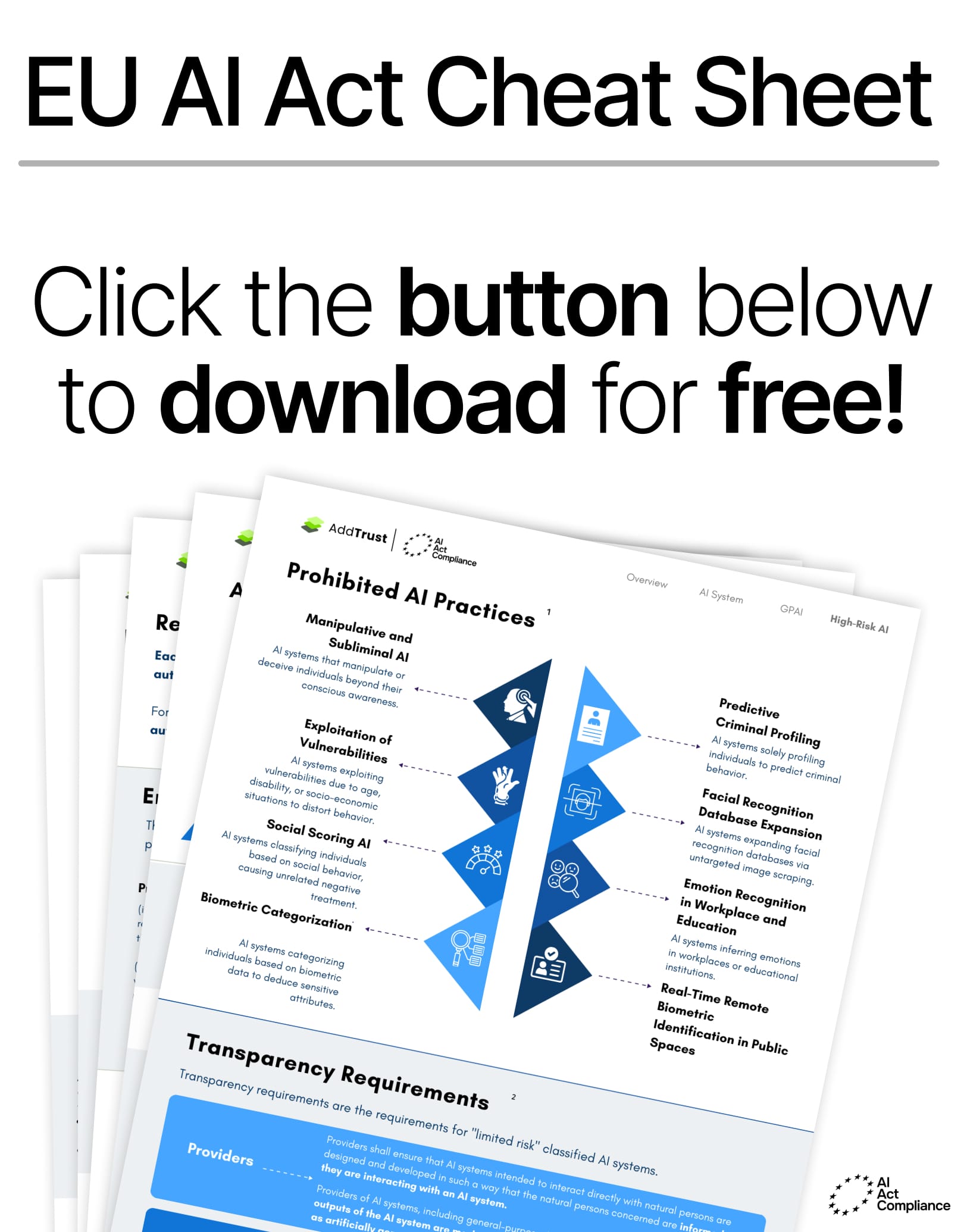Summary of Article 95
- AI Office and Member States’ Role in Voluntary Codes: The AI Office and Member States encourage the development of voluntary codes of conduct for non-high-risk AI systems, which can be created by providers, deployers, or representative organizations.
- AI Office and Member States’ Role in AI Governance: The AI Office and Member States support the creation of codes of conduct that promote best practices in AI, covering ethical guidelines, environmental sustainability, AI literacy, diversity, and mitigating risks for vulnerable groups.
- AI Office and Member States’ Support for SMEs: The AI Office and Member States ensure that the specific interests and needs of SMEs, including start-ups, are considered when developing codes of conduct.
AI Office and Member States’ Role in Voluntary Codes
1. The AI Office and the Member States shall encourage and facilitate the drawing up of codes of conduct, including related governance mechanisms, intended to foster the voluntary application to AI systems, other than high-risk AI systems, of some or all of the requirements set out in Chapter III, Section 2 taking into account the available technical solutions and industry best practices allowing for the application of such requirements.
3. Codes of conduct may be drawn up by individual providers or deployers of AI systems or by organisations representing them or by both, including with the involvement of any interested stakeholders and their representative organisations, including civil society organisations and academia. Codes of conduct may cover one or more AI systems taking into account the similarity of the intended purpose of the relevant systems.
AI Office and Member States’ Role in AI Governance
2. The AI Office and the Member States shall facilitate the drawing up of codes of conduct concerning the voluntary application, including by deployers, of specific requirements to all AI systems, on the basis of clear objectives and key performance indicators to measure the achievement of those objectives, including elements such as, but not limited to:
(a) applicable elements provided for in Union ethical guidelines for trustworthy AI;
(b) assessing and minimising the impact of AI systems on environmental sustainability, including as regards energy-efficient programming and techniques for the efficient design, training and use of AI;
(c) promoting AI literacy, in particular that of persons dealing with the development, operation and use of AI;
(d) facilitating an inclusive and diverse design of AI systems, including through the establishment of inclusive and diverse development teams and the promotion of stakeholders’ participation in that process;
(e) assessing and preventing the negative impact of AI systems on vulnerable persons or groups of vulnerable persons, including as regards accessibility for persons with a disability, as well as on gender equality.
AI Office and Member States’ Support for SMEs
4. The AI Office and the Member States shall take into account the specific interests and needs of SMEs, including start-ups, when encouraging and facilitating the drawing up of codes of conduct.



